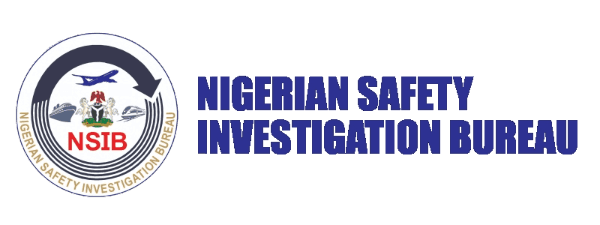The Nigerian Safety Investigation Bureau (NSIB) is embarking on a transformative journey to elevate safety standards across all modes of transportation in Nigeria. Driven by a commitment to preventing future accidents by learning from past incidents, the NSIB is pioneering a unified, multimodal approach to transport safety, marking a departure from the traditional mode-specific practices. This new approach is underpinned by the NSIB Act of 2022, which expands the Bureau’s mandate and empowers it to develop comprehensive safety regulations. Central to this initiative are two forthcoming regulatory instruments: the NSIB Casualty Investigation Regulations for Maritime Transport and the Rail and Track Accident Investigation Regulations for Nigeria’s rail sector. These frameworks are poised to revolutionize accident investigations and safety recommendations, fostering a more holistic and proactive safety culture throughout Nigeria’s transport network.
The NSIB’s maritime regulations, aligned with the International Maritime Organisation’s Casualty Investigation Code, will standardize the investigation process for incidents occurring on Nigeria’s inland waterways, ports, and flagged vessels. This alignment with international best practices ensures consistency and enhances the credibility of investigations while contributing to a global understanding of maritime safety challenges. Concurrently, the rail regulations are being meticulously crafted to address the specific characteristics of Nigeria’s railway infrastructure, drawing upon international rail safety benchmarks. This tailored approach acknowledges the unique challenges and operational realities within the Nigerian rail sector and aims to establish safety protocols that are both effective and contextually relevant.
These developments build upon the NSIB’s successful implementation of ICAO Annex 13 in air accident investigations. This internationally recognized standard has proven instrumental in improving aviation safety globally and has served as a blueprint for Nigeria’s own aviation reforms. The NSIB sees the success of ICAO Annex 13 as a strong foundation for extending similar principles to other modes of transport, creating a unified and consistent approach to safety investigations and recommendations across the board. This harmonized methodology, termed “mode-agnostic” by the Bureau, promotes cross-sector learning and strengthens the overall national safety framework.
The NSIB’s Director-General, Capt. Alex Badeh, emphasized that the Bureau’s mission extends beyond simply investigating accidents. The ultimate goal is to ensure that every investigation translates into tangible improvements in transportation safety. This proactive approach focuses on preventing future incidents by systematically addressing the root causes identified through thorough investigations. Capt. Badeh stresses that the effectiveness of the NSIB’s work is measured not by the quality of the reports produced, but by the extent to which their recommendations are implemented and lead to demonstrable safety enhancements on the ground.
While the NSIB is responsible for conducting independent investigations and formulating safety recommendations, the crucial task of implementing these recommendations rests with other transport agencies. Recognizing this critical link in the safety chain, the NSIB is actively engaging with key stakeholders, including NIMASA, NPA, NIWA, NOSDRA, the Nigerian Shippers Council, and the Nigerian Railway Corporation, urging them to proactively develop internal mechanisms for adopting and acting upon the Bureau’s recommendations. This collaborative approach emphasizes the shared responsibility for national transport safety and calls upon all stakeholders to actively participate in building a safer transport ecosystem.
Underscoring the importance of inter-agency collaboration, the NSIB highlights that safety insights gleaned from different transport modes should inform a collective national safety strategy. The Bureau believes that cross-sector learning is essential for identifying common safety challenges and developing integrated solutions. As it finalizes and prepares to present the new regulations to stakeholders, the NSIB is committed to continuing its engagement with both agencies and the public, emphasizing the critical role each plays in creating a safer transport future for all Nigerians. With Nigeria’s transport infrastructure undergoing significant expansion to support its economic development goals, the NSIB’s focus on proactive safety measures is not only timely but essential for ensuring sustainable and secure growth in the transport sector.


